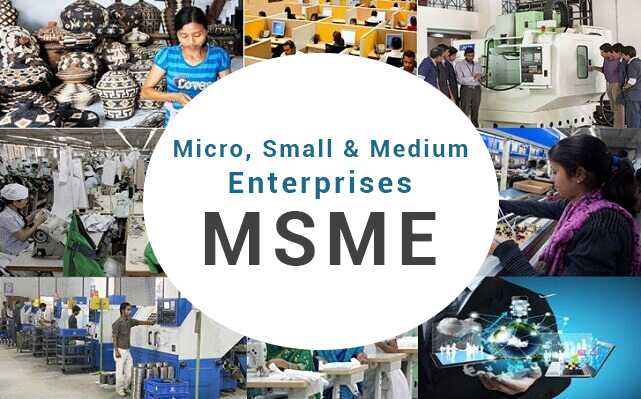This article is written by Prayrana Singh, from Navrachana University, Vadodara.
Table of Contents
Introduction
GUEST SPEAKER: Advocate Aditya Deshwal
DESIGNATION: Start-up and Corporate Advocate
HOST: Anubhav Garg
ABOUT THE SPEAKER: Advocate Aditya Deshwal completed his law Graduation from Dehradun then came to Delhi for practicing. He has 4 years of experience in advising and assisting start-ups and MSMEs with their legal issues regarding incorporation, Registration compliances, Arbitration, M&A, Insolvency & Bankruptcy and IPR.
Understanding MSME and its benefits
In 2014 the government was pushing all the start-up and we saw lots of boost in this and now the government is looking to push this MSME sector. This MSME act is from 2006 but still, a lot of people are unaware of this act. The benefit is it provides lots of prospects now as the government is pushing this act people are getting aware of this.
What are the criteria for any entity for MSME registration?
Before proceeding to this question we first need to understand the background of this act and why this act, why all these provisions have been required. As a country after getting independence after 1947, we were deprived of industrial production and we were left with nothing since then the government has contributed to pushing the industrial production which further increases the GDP of the country and improving the economics of the country.
This particular product is by-product vision to enhance the production, to enhance productivity. The objective of this particular act is to enhance and to boost all those micro, medium or small industries or enterprises which have small capital. They on the other hand provide a huge turn over to the country, they provide a lot of employment to the country and strengthen the economics of the country. So despite the fact, they have shown the amount of the industry but the output they provide to the economy is very substantial. This act talks about the repeal of the act called The Interest On Delayed Payments To Small Scale And Ancillary Industrial Undertakings Act, 1993 this act particularly repeals this act and give a holistic opportunity to industries in the sector this act has been enacted by the legislation which provides lots of dispute addressable mechanism, is a star point which caste differently from another disputer mechanism.
Coming to the question we have after this lockdown when our honourable finance minister announced a lot of merit from the finance ministry and with that whole new classification of MSME was announced by the ministry. Earlier criteria amount to MSME, which provides two services one is the manufacturing sector another is the service sector. One sector is someone which is the manufacturing of products and the other leads to providing services.
An earlier classification which was 1st June 2020, it defines different parameters for how any entity involved in manufacturing which will fall under micro, medium or small category and how an entity involved in providing services which will fall under the micro, medium or small category. Earlier a micro-enterprise that is the manufacturing will fall which has the investment in the plant and machinery less than 25 lac Rupees. Any service industry which has investment and equipment below 10 lac Rupees shall be medium enterprise.
There was some problem which was recognised by the ministry and this is why to solve the problem and to address the situation they came up with the new criteria which were announced on 1st June 2020, that was now to fall under this criterion of MSME they have made one criterion for both service and manufacture industries earlier there were two different parameters for this category now there is only one for the both to decide whether the entity will fall under micro, small or medium enterprise category in respective of the fact and of the business which they are dealing with. So in order to fall under the category of micro any entity which has the investment in the plant and machinery up to 1 crore or which has the turn over less than 5 crores. For the small enterprises the investment in the plant and machinery up to 10 crore and turnover up to 50 crores. For medium enterprises the investment in the plant and machinery up to 50 crore and turnover up to 250 crores.
The basic confusion in people is in the category of MSME and who can be MSME?
In India any entity as per our law there are 3 recognised structure of entity i.e.:
- Proprietorship.
- Partnership.
- Incorporated form of company
These three entities fall under the MSME criteria with the condition that either they are manufacturing or they are providing services and if any entity is related to these conditions will come under this definition of MSME and to meet the classification they have to comply with the condition mentioned above.
What are the advantages of MSME registrations?
Advantage for recovery of money
Any entity can avail these advantages can be classified into two sections of Operational benefits (after getting registered into this one can avail lots of benefits schemes and loans which have been provided by the government):
- Section 15 of Micro, Small and Medium Enterprises Development Act, 2006 provides that any enterprise registered under the Act as MSME can file its claim before the Micro, Small and Medium Enterprises Development Facilitation Council if the buyer fails to clear the payment within 45 of the goods supplied or services rendered.
- Further, as per the MSMED Act, the supplier is entitled to get compound interest with the monthly rests from the due date of payment at 3 times of the ban rate as notified by Reserve Bank Of India (RBI), receivable from buyers.
- The award passed under arbitration is not appealable and can only be challenged on the ground of some illegality in the passing of the award and can only be challenged before the High Court. On the other hand, in other modes of recovery, the appeal can be launched at three to four levels which can prolong the finality of dispute up to 10 years.
- If the buyer goes to appeal against the order passed in favour of the supplier of goods or services, then the appeal shall only be heard once the buyer deposits at least 75% of the amount of the award passed in favour of the buyer.
Registration under Micro, Small and Medium Enterprises Development Act, 2006
The registration for MSME is free of cost, and you can register yourself under their portal called Udhayam Registration. Under this Micro, Small and Medium Enterprises Development Act, 2006 requires the following documents:
- Aadhar Card of proprietor/Partner/Director (as the case may be).
- Name and Type of enterprise.
- PAN of the enterprise.
- Registration Address of the business.
- Investment in plant & machinery.
- Turn over details.
- National Industry Classification Code (NIC Code).
- Bank details.
The scheme of the act for the purpose of recovering money
Samadhan portal 2017 where one can file their claim. This is both an online and offline process where one can file their complaint.
Filing of claims before Micro, Small and Medium Enterprises Development Facilitation Council
The provisions of MSMED Act, 2006 clearly mandates that where goods are supplied by the supplier or services are rendered to the buyer then the buyer shall make the payment within the period mentioned in the agreement or if there is no agreement then within 45 days from the date of the acceptance of delivery of goods or of services rendered to the buyer. So, any supplier who is not being paid by the buyer within the above mentioned time span can file its claim before the MSMED Facilitation Council.
Conciliation between parties will be done through the MSMED Council so the dispute can be resolved. The settlement of this claim is always welcome as it saves both the parties’ money as well as time. This process has to be completed in a time-bound manner i.e., within 90 days.
If any dispute does not settle in the conciliation process then the facilitation council would refer that dispute to the arbitration council. The arbitration shall be conducted and the award shall be passed on the basis of the merit of the case.
Problems arising under this act are when there are two main objections of the buyers in case Ramky Infrastructure Private Limited V. Micro and Small Enterprises Facilitation Council, 2018 SCC Online Del 9671, The Honourable Delhi High Court laid down the criteria, for this Delhi High Court has referred to Sec 2 (n) of the Act which defines supplier that who is supplier. Restriction under this act is only for the object of the classification of the enterprise.
For the dispute mechanism and recovery method in the case GE T&D; India Limited V Reliable Engineering (2017) 238 DLT 79, in this case, the Honourable Delhi High Court has referred to Sec 18 of the Act which is important. Held that the provision of the for approaching facilitation under the act overrides any other mechanism over the dispute and resolution provided under any act and held that sec 18 overrides all other provisions.
Timeline under this act, any existing MSME who already have been under MSME they are required to register again under the act before 31 March of the accounting year during this there registration shall remain valid. And new entities can register for 2021 they can register for availing the benefit of MSME Act. Traders cannot register under the MSME Act because they jump from one party to another to retain commission and avail margin between them so they are not actually contributing to the sector.
LawSikho has created a telegram group for exchanging legal knowledge, referrals and various opportunities. You can click on this link and join:
 Serato DJ Crack 2025Serato DJ PRO Crack
Serato DJ Crack 2025Serato DJ PRO Crack











 Allow notifications
Allow notifications


